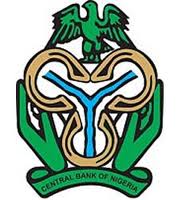A
abujagirl
Guest
THE ECONOMIST believes it's weird for Nigeria to place a forex ban on toothpick,sardines and 38 other items.

READ: CBN Stops the Sale of Forex for 40 Items [SEE LIST]
CENTRAL bankers may talk in martial terms of defending currencies against bloodthirsty speculators, but they seldom suffer wounds more grievous than a bruising of their egos. They can, however, cause untold harm to economies, as the Central Bank of Nigeria (CBN) is doing in puffing up its exchange rate.
The naira has been hit hard by a fall in the price of oil, Nigeria’s main export. The official exchange rate has slumped by almost 20% over the past year to about 196 naira per dollar. The black market rate, a more accurate gauge, is close to 230. Instead of allowing the naira to devalue, the central bank is trying to defend it by blocking imports. It has drawn up a list of disfavoured goods, and will not grant foreign exchange to import them.
Godwin Emefiele, the governor of the central bank, said he wants to conserve foreign reserves (which have fallen by about a fifth over the past year and now cover only six months of imports) and stimulate local production. “Nigeria cannot attain its true [potential] by simply importing everything,” he said.
The hit list appears to have been drawn up by someone wandering around a home and a building site and randomly pointing at items. It includes Indian incense, toothpicks and wire rods as well as more obvious luxuries such as private jets (demand for which could be slashed by simply barring government officials from flying in them). It also includes basics such as rice and tinned fish. Nigeria does not produce enough of these things to feed itself, but no matter. The nation must be shielded from foreign sardines.
Economists find the policy baffling. Central banks usually prop up their currencies if they are worried about inflation, or allow them to devalue to depress imports and stimulate exports. Nigeria, by contrast, appears to be set on achieving both an uncompetitive exchange rate and higher inflation. Whereas many investors were impressed by the previous CBN governor, Lamido Sanusi, who was sacked for exposing corruption, they fret about the harm being inflicted by the current one. Some wonder which would be worse for Nigeria: allowing him to serve the remaining four years of his term or undermining the independence of the central bank by sacking him.
Culled from The Economist

READ: CBN Stops the Sale of Forex for 40 Items [SEE LIST]
CENTRAL bankers may talk in martial terms of defending currencies against bloodthirsty speculators, but they seldom suffer wounds more grievous than a bruising of their egos. They can, however, cause untold harm to economies, as the Central Bank of Nigeria (CBN) is doing in puffing up its exchange rate.
The naira has been hit hard by a fall in the price of oil, Nigeria’s main export. The official exchange rate has slumped by almost 20% over the past year to about 196 naira per dollar. The black market rate, a more accurate gauge, is close to 230. Instead of allowing the naira to devalue, the central bank is trying to defend it by blocking imports. It has drawn up a list of disfavoured goods, and will not grant foreign exchange to import them.
Godwin Emefiele, the governor of the central bank, said he wants to conserve foreign reserves (which have fallen by about a fifth over the past year and now cover only six months of imports) and stimulate local production. “Nigeria cannot attain its true [potential] by simply importing everything,” he said.
The hit list appears to have been drawn up by someone wandering around a home and a building site and randomly pointing at items. It includes Indian incense, toothpicks and wire rods as well as more obvious luxuries such as private jets (demand for which could be slashed by simply barring government officials from flying in them). It also includes basics such as rice and tinned fish. Nigeria does not produce enough of these things to feed itself, but no matter. The nation must be shielded from foreign sardines.
Economists find the policy baffling. Central banks usually prop up their currencies if they are worried about inflation, or allow them to devalue to depress imports and stimulate exports. Nigeria, by contrast, appears to be set on achieving both an uncompetitive exchange rate and higher inflation. Whereas many investors were impressed by the previous CBN governor, Lamido Sanusi, who was sacked for exposing corruption, they fret about the harm being inflicted by the current one. Some wonder which would be worse for Nigeria: allowing him to serve the remaining four years of his term or undermining the independence of the central bank by sacking him.
Culled from The Economist

